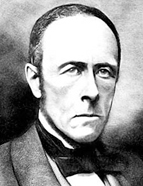

As for the Portuguese Middle Ages, in Herculano’s opinion, such dichotomies were grounded on a fundamental ambivalence of the chronicles of that period, representations of the past where aesthetic imagination blended intricately with factual truth pretensions. Originating from a historical constellation implicitly understood as being analogous to that of the Middle Ages, Herculano’s historical fiction creatively emulates the medieval historiographic tradition and explores the potential resulting from a hybridisation, self-conscious now of factual and fictional records (Alonso, “Historia, conocimiento y narración” [“History, knowledge and narrative”], 67-68). One of its distinctive features is the aim to characterize the social and cultural conjuncture, ways of thinking and feeling and the typical beliefs and customs of distant pasts in a truthful, quasi-realistic manner. Herculano saw himself as a chronicler, but not of specific events; he strove to represent the general “spirit”, the essential traits of “intimate life” at a given time in history, instead of attaining the factual truth in external, episodic details (Alonso, “Historia, conocimiento y narración”, 56-59). He could thus associate his relatively strong desire for objectivity with contextual characterisation, while allowing himself a certain degree of fictional freedom, incomparably greater in his handling of characters and plot.
The success of his literary and journalistic activity made Herculano a celebrity in national public life, leading to his appointment, at the age of 33, as correspondent of the Academia Real das Ciências de Lisboa [Royal Academy of Sciences of Lisbon]. Pari passu, he was a member of parliament for a short period of time, between 1840 and 1841, during which period he made note of the disagreements and frustrations. The disagreements, related to the popular education project he had co-authored and to his opposition to the government’s intention to extinguish the Escola Politécnica [Polytechnical School] finally culminated in his involuntary removal from the Comissão de Instrução Pública [Public Instruction Committee] (Saraiva, Herculano e o Liberalismo, 17-18; 115-132). Herculano then decided to leave the Câmara de Deputados [Members of Parliament Chamber ] and later exposed his defeated positions in the press, eventually taking refuge in historical research and imagination, seeking to find solace in the national past for his hopeless disbelief in the tumultuous politics of Portugal in the 1840s. It was in the context of this self-exile of sorts from politics that his historical novels were created, as well as the four volumes of what would come to be his magnus opus, História de Portugal [The History of Portugal]. Years later he compared his experience as a parliamentarian to a “beastly sin” further explaining that he had sought penance for that sin in the “sheer obstinacy of writing the history of this land with loyalty and conscience” (O monge de Cister, II, 340).
